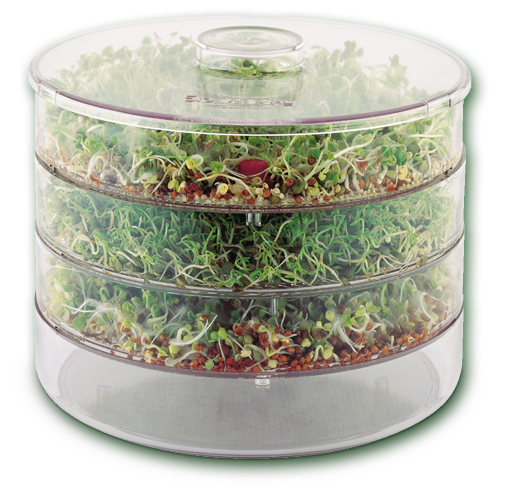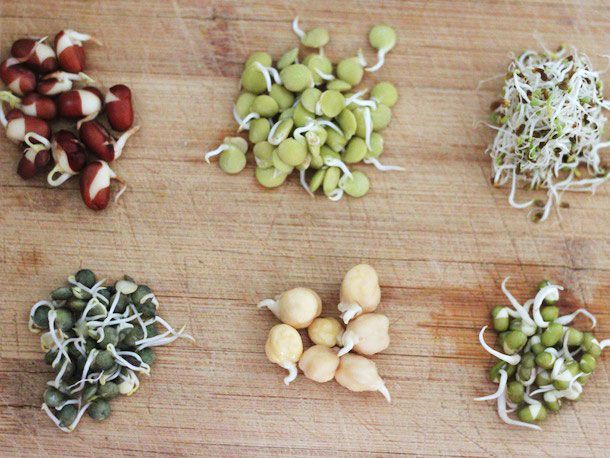When carnivores are being derogatory about vegetarians, they often envisage them as granny print dressed sprout munchers. But there is a great deal to be said for growing sprouts: when you get it right they are hugely rewarding to grow (or does one “facilitate” their development?) and they are also highly nutritious. So now, in the dead of winter, would be a good time to invest in a sprouter.
You can make your own sprouter using a glass jar. We all remember watching beans sprout on layers of wet cotton wool as children, but there are many reasonably priced commercially produced sprouters available.
Once you have acquired your sprouter, start with untreated, whole dry seeds, beans, grains or nuts.
Points to Remember
There are various factors to bear in mind for the best results when growing sprouts:
- Rinse often. You do this so that they remain moist and you wash away carbon dioxide and other metabolic wastes. This also keeps them cool.
- Keep them moist, not wet. Ensure that the drainage is adequate, otherwise there is a danger of mould.
- Keep them at room temperature. Make sure that they are not in a cold draft or near excessive heat.
- Give them plenty of room to breathe. For free air circulation, at least one-third of the container must be empty.
- Don’t put too many in any one container. Sprouts expand 6 to 10 times over a few days, so give them plenty of room to grow.

Sprouters are widely available
This is not conventional gardening ~ there’s no weeding!
The sprouts are ready to be harvested within two or three days of the little shoots appearing and some varieties are even earlier. If you are not going to eat them all at once, they can be kept in an airtight container in the fridge for some time, especially if they are rinsed to keep them fresh.
Nutritionists loudly sing the praises of sprouts as a valuable part of one’s diet, with some of them maintaining that sprouts have the highest concentration of nutrition per calorie of any food. They are a cheap source of protein, vitamins, minerals, anti-oxidants and carbohydrates. Because sprouts are hugely rich in enzymes, they are a great aid to digestion. Sprouts are very low in fat and because they produce a single sugar, they supply quick energy. Sprouts also provide essential fatty acids but no cholesterol.
So it really does seem worth taking the trouble to grow these little wonder foods!

